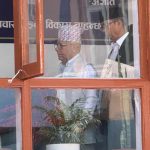Kathmandu: Russian President Vladimir Putin has vowed to punish those behind the armed mutiny, which has plunged the country into unexpected crisis.
The Wagner private military group claims to have taken control of key military facilities in two Russian cities, Rostov-on-Don and Voronezh.
Wagner chief Yevgeny Prigozhin claimed Saturday to have seized control of key military facilities in Rostov and Voronezh, pledging to move on to Moscow if Russia’s Defense Minister Sergei Shoigu and top general Valery Gerasimov did not meet with him.
Prigozhin called for a rebellion against the army – although he has denied attempting a coup. But he has threatened to march on Moscow if he is not granted an audience with Russia’s defence minister.
Prigozhin accused the army of launching a deadly attack on his forces in Ukraine, where Wagner troops are fighting for Russia – Moscow denies this.
In a message posted to Telegram on Saturday morning, Yevgeny Prigozhin said that all the members of his Wagner group of mercenaries were ‘ready to die’ in his action against the Russian military.
‘All of us are ready to die. All 25,000, and then another 25,000,’ he said in an audio message, adding the action was being taken ‘for the Russian people’.
Earlier, the official Russian news agency TASS reported that traffic had been blocked on the M-4 highway past Rostov-on-Don towards Aksay.
‘All cars moving from Rostov-on-Don towards Aksay are being redirected back in the city, and police checkpoints have been reinforced,’ TASS reported.
President Putin decries ‘betrayal’ and ‘treason’ following a dramatic challenge by the chief of the Wagner mercenary force. Without mentioning Prigozhin by name, he vowed to punish those behind the armed mutiny
On Friday night, security in Russia was tightened, the internet was restricted and military trucks were spotted on Moscow streets.
The Wagner Group (officially called PMC Wagner) describes itself as a ‘private military company’. It was first identified in 2014, when it was backing pro-Russian separatist forces in eastern Ukraine. Since then, it has grown considerably.
The UK’s Ministry of Defence says Wagner started recruiting in large numbers in 2022 because Russia had trouble finding people for its regular army.
About 80% of Wagner’s troops in Ukraine have been drawn from prisons, the US National Security Council said at the start of this year.
In Ukraine, Wagner troops played a major part in the long and costly fight to take the city of Bakhmut from Ukrainian forces.











